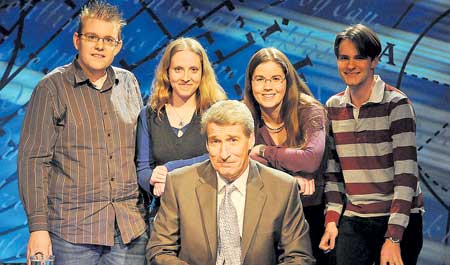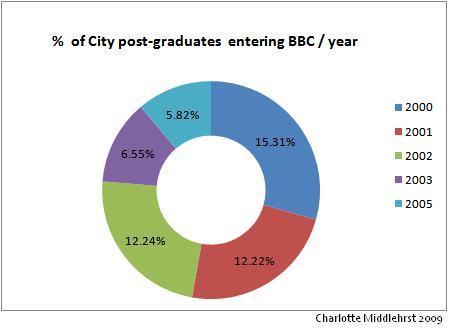
HomeGrown Stupidity: literacy not required
I’d love to be an Assistant Content Producer for Radio 1 or 1Xtra. I listen to both radio stations, have plenty of relevant skills, and know a fair bit about the music.
In fact, they’re advertising the role now.
It looks like I can jump through most of the hoops (“competencies”) they’ve listed too:
1. Planning and organising – able to think ahead in order to establish an efficient and appropriate course of action for self and others. Prioritises and plans activities taking into account all the relevant issues and actors such as deadlines, staffing and resources.
2. Communication – able to get one’s message understood clearly by adopting a range of styles, tools and techniques appropriate to the audience and the nature of the information.
3. Influencing and persuading – able to present sound and well reasoned arguments to convince others. Can draw from a range of strategies to persuade people in a way that results in agreement or behaviour change.
4. Managing relationships and team working – able to build and maintain effective working relationships with a range of people. Works co-operatively with others to be part of a team, as opposed to working separately or competitively.
5. Developing others – able to recognise potential (managerial, professional, artistic or otherwise) and is willing to foster the development of that potential. Creates a climate in which potential can be realised.
6. Resilience – manages personal effectiveness by managing emotions in the face of pressure, set backs or when dealing with provocative situations. Demonstrates an approach to work that is characterised by commitment, motivation and energy.
7. Flexibility – adapts and works effectively with a variety of situations, individuals or groups. Able to understand and appreciate different and opposing perspectives on an issue, to adapt an approach as the requirements of a situation change, and to change or easily accept changes in one’s own organisation or job requirements.
8. Editorial Judgement – demonstrates balanced and objective judgement based on a thorough understanding of BBC editorial guidelines, target audience, programme and departmental objectives. Makes the right editorial decisions, taking account of conflicting views where necessary.
9. Creative Thinking – able to transform creative ideas into practical reality. Can look at existing situations and problems in novel ways and come up with creative solutions.
10. Strategic thinking – able to identify a vision along with the plans which need to be implemented to meet the end goal, evaluating situations, decisions and issues in the short, medium and long term.
11. Analytical thinking – able to simplify complex problems, processes or projects into component parts explore and evaluate them systematically.
All vital skills I’m sure.
But, hang on, being literate isn’t required from a BBC Radio 1/1Xtra worker?
Clearly not, if this is one of the application questions…
How best can Radio 1 & 1Xtra grow it’s (sic) reach through new digital services and from which online services can the stations learn from (sic)?
I’m not answering that.
Obviously at BBC Cool they’re too busy communicating through the medium of UK Garage to remember their grammar. Well now they’ve lost all self-respecting candidates from the application process. Clever buggers!





Your BBC Needs You – interviewing a BBC veteran on Ross, Brand, and management mess
April 6, 2009 in Uncategorized | Tags: Barry Langridge, BBC employment, BBC World Service, City University, Comment, impartiality, Ross, Russell Brand, Sachsgate | Leave a comment
To contrast with the fledgling students I interviewed at City University, I had a chat with ex-BBC World Service board member Barry Langridge, a management expert and enthusiast for BBC ethics.
You can download the podcast below:
Public Surface Podcast, with Barry Langridge MBE
He says the BBC management is to blame for many of the crises discussed in this blog – all the more reason for City University alumni to get involved.